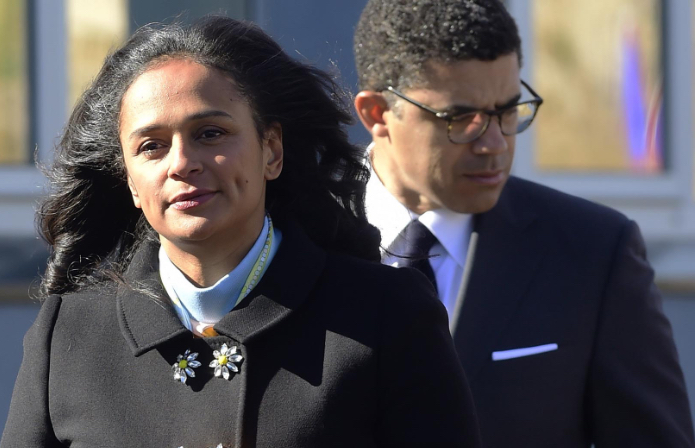The United Kingdom has imposed sanctions on Angolan billionaire Isabel dos Santos, including a travel ban and an asset freeze under its global anti-corruption sanctions framework.
The UK government announced the measures on Thursday, citing allegations of misappropriation of public funds during her tenure as head of Sonangol, Angola’s state oil company. According to the government, Dos Santos diverted over £50 million (approximately $63.19 million) for personal use.
Isabel dos Santos, Africa’s first female billionaire, is the daughter of José Eduardo dos Santos, who ruled Angola for 38 years until 2017. She has been the subject of extensive corruption investigations both in Angola and internationally. The UK’s action aligns with efforts to combat financial misconduct and promote accountability on a global scale.
Responding to the sanctions, Dos Santos refuted the allegations, claiming she is a victim of a long-standing political vendetta. She argued that the accusations against her are baseless and politically motivated, leading to the freezing or confiscation of her assets in Angola and Portugal. “These actions are part of a calculated campaign to tarnish my reputation and silence me,” she asserted in a statement.
The sanctions mark a significant move in the international fight against corruption and underscore the UK’s commitment to holding influential figures accountable. The government emphasized that such measures are critical to deterring corrupt practices and fostering transparency in global governance.
Source: icij.org
Background to Angolan billionaire Isabel dos Santos’ Story
In 2020, ICIJ’s Luanda Leaks investigation revealed how dos Santos and her late husband set up entities in secrecy jurisdictions to benefit from lucrative deals involving Angola’s state-owned oil company, along with state contracts for companies linked to her in diamonds, telecommunications, banking and real estate under the rule of her father, José Eduardo dos Santos. ICIJ showed the couple at the time had owned or partly controlled more than 400 entities around the world.
Accountants and consultants, including Raikundalia and Oliveira, were key to dos Santos’ financial dealings after her father’s administration appointed her head of state-owned oil company Sonangol in 2016, ICIJ found.
During her time at Sonangol, dos Santos brought in Raikundalia, then a senior executive at PwC Angola, to be the company’s chief financial officer. Oliveira, a friend and long-time associate, helped her set up Dubai-registered shell companies used to divert millions, documents reviewed by ICIJ and its media partners showed.
Early this year, Angolan prosecutors charged dos Santos with embezzlement, money laundering and other crimes, and leveled criminal charges against some of her associates, including Raikundalia and Oliveira, accusing them of defrauding the state during dos Santos’s time as the chair of Sonangol’s board.
The prosecutors allege that dos Santos and her allies caused the state to lose about $219 million from unduly paid salaries, loss-making sales, tax fraud and fraudulent payments to several of dos Santos’ shell companies. As the head of Sonangol, she assigned herself a monthly salary of $50,448 — nearly $19,000 more than her predecessors, according to the indictment.
Dos Santos is already subject to asset freezes in several countries, including Portugal and the U.S. Last year, she lost a legal battle in London’s High Court to prevent a freeze on up to $733 million of her assets. In 2022, Angolan authorities requested her provisional arrest through the Interpol Red Notice system.


